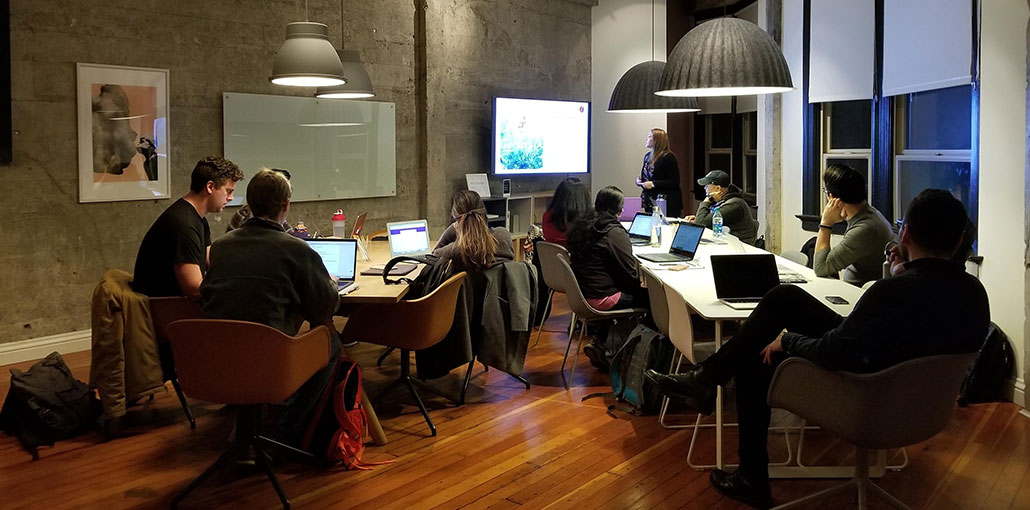Product team applicants have more strict requirements than component teams and classic project teams. Because of the higher level of responsibility and involvement, this is often the case. Specialists who are suited for this role require high proficiency and other skills. This will impact the quality and speed at which a product is released, as well the sustainability of the company and its ability to respond quickly to changes in the market.
Here are some common mistakes that could lead to the hiring of unsuitable candidates
1. Inexperience in cross-functional settings
A cross-functional product team has one unique feature: its members are involved with the decision-making process. This means they are used to communicating with one another and have many meetings. For a developer used to working independently, such communication might be a new experience. A developer who is used to working independently might feel distracted from the most important task of writing code. This type of developer is likely to be a problem. They will likely slow down work and demotivate other developers.
These teams use the iterative and incremental design (IID) which means that work is done in short, iterations. This allows for the implementation of high-priority business features in every version of the product. A typical iteration takes approximately two weeks. During this time, you must design, develop and test the entire product with the goal of getting as much user feedback as possible. It can be difficult for developers to adjust to such a fast pace. They may be less comfortable working with detailed requirements and might spend too much time designing the system.
Also read: Why Teamwork is Important in Software Product Development
2. Wrong work approach
It is important to know the habits and approaches of developers when writing code. These have a direct impact on the quality and timeliness of product releases. It is important to ensure that the specialist knows the differences between production-ready and feature-complete versions. Make sure the candidate is familiar with how the final product is released as well as how to manage the codebase’s ownership. Ensure that the candidate considers automated testing and code review part of their normal workflow.
3. Hire a “superstar software developer”
It can feel like you have won the multi-million dollar lottery by hiring a “superstar” developer. These specialists are highly sought-after by companies and they can be costly to recruit. They can make difficult technical decisions and lead large projects. You should make sure you have the following things in mind if you feel confident about such an employee is the right fit for you and your team.
This approach can result in a decrease in the quality of the product and a weakening team. It cannot be developed and designed by one person. If this “superstar” is dismissed, the company will have a team that is unable to make decisions on its own and can’t see the whole picture.
4. Participation at a low level
Developers who have never had to deal with user problems or product involvement, and don’t want to get involved in the process — preferring to write code that conforms to strict requirements — are not the right match. While coders are focused on completing a task, the true value of an employee lies in their ability to make good decisions and not just in writing code. You shouldn’t expect breakthrough ideas if a specialist doesn’t want to solve specific problems.
5. Diverse perspectives on professional growth planning
There will always be bottlenecks in the process of development. These are often located in the backend, data analytics, and testing areas. These bottlenecks can be overcome by allowing developers to grow in their respective areas. However, not all employees are ready to learn new skills. In order to be the most highly-paid employee in a more competitive environment, many employees want to stay focused on their core expertise. It is important to identify a candidate’s willingness and ability to learn new skills, as well as what he/she has learned in previous jobs. Look for professionals who are willing to learn and grow with your product.
6. Inability to give or handle feedback
It is important that developers are able to give feedback constructively. They won’t view it as personal criticism, but they will be able to communicate it to others. Professionals are more likely to use sarcasm, humor, and other microaggressions in order to communicate their opinions. This is because they don’t know how to constructively address team issues. For a team to function well, it is important that there is a safe environment for everyone to speak up. Ask a candidate how many times and what format he or she received feedback from colleagues.
7. Communication with stakeholders and users is not a good idea.
It is crucial to have open communication between the members of the development team, users, and other stakeholders in order for a product to succeed. This allows the team to develop a shared vision and provides motivation. Some developers prefer to have direct communication with clients. Others are more focused on code and don’t see the value in this. However, if you focus solely on technical solutions, some features may be unnecessary or counterproductive.
It is important to ensure that potential employees are motivated to deliver the best products available and that they know that it is crucial to communicate with customers. This can be done in the form of special meetings, or a series of user interviews/email questionnaires to solicit customer feedback.
Also read: The Role of Data Analytics in Product Development R&D Process
8. Inaccurate assessment of a developer’s capabilities
Although it may seem simple, this is essential. Hire a developer with the right skills and competence. A specialist will not be able to handle a difficult project. This will result in a decrease in quality and a waste of time. This can lead to stress. If you assign too many tasks to experienced employees, it can cause stress. There is always the possibility that a developer will leave, even in the worst case. It is important to identify core competencies and assign tasks that address and improve professional skills. However, the amount of knowledge needed for each task should be limited.
9. Do not focus on soft skills
Studies and project results show that it is important to assess employees’ motivations and soft skills in order to predict their ability to adapt and succeed in a new environment. These skills will be more crucial for employees’ career advancement the higher their position is.
What types of soft skills and motivation should be considered? We conducted our own research covering 100 companies in different markets across the U.S. and Europe. The research revealed that soft skills are what determine how quickly and effectively an employee adapts to a new company. It can be divided into four main clusters: interaction with innovation; approach to problem-solving; communication with people; and behavior under stress. We identified key competencies within each.
For example, the “communication with people” grouping includes communicativeness, extraversion/introversion, interpersonal sensitivity, cross-cultural adaptability, and teamwork ability. These skills can be used to determine an individual’s preferences and help them choose the most suitable work environment. This is the key to a successful business.
This is also important because employees and employers will have a long-lasting relationship if the company culture matches their motivations and values. Software engineers are aware of the importance of professional development. It is important to know how each individual wants to grow, whether it be by improving their skills in a specific area or expanding their knowledge and practices.
It is also important to understand the social motivations of employees. This could include the social significance of the project, public appreciation, and the chance to work with famous products, clients, and/or “superstars” developers. It’s not uncommon for candidates to agree to a lower payment if the organization meets these criteria.










Leave a comment